- Home
- Taylor Caldwell
Captains and the Kings Page 30
Captains and the Kings Read online
Page 30
Chapter 21
"You don't dare kill me, an officer of the Union Army," said the young lieutenant. He had sustained only a flesh wound, though a serious one, ?and had been expertly attended by a trained man on the ship. He lay on the cot in the brig and stared derisively in the lantern light at Mr. Montrose, who sat on the only chair, and then at Joseph, who stood near him with his pistol in his hand. "You may be due for an unpleasant surprise," said Mr. Montrose with amiability. "Just because the gentleman near you did not kill you does not mean that we shall hesitate now when we are at sea. It was only expediency which preserved your life and made us bring you aboard. Do not try my patience, Mr. --?" The soldier spat at him. Joseph aimed the pistol at his temple, and the soldier shrank. He looked up at Joseph's face and saw the hollow danger of it and the flat small eyes and contracted mouth. "You don't dare," he repeated, but it was a trembling question. "I am losing patience," said Mr. Montrose. "You have heard our questions. Answer them immediately or, sir, you will die before another minute has passed. If you are candid with us we may spare your life. If not, you will be dead and in the sea, as soon as we have passed the patrols." The soldier was a young man, a very young man, and now he became hysterical both with pain and fear. He began to speak in a rushing and gasping voice. It was almost as Joseph had speculated. Colonel Braithwaite had ordered him to hire ruffians of the city and then, at the right moment, to rob Mr. Montrose on the wharf, take the clearances, and then murder Mr. Montrose, the captain, and Joseph. After that he was to notify the port authorities that he had heard shots, had investigated, and found the three bodies. He was not to go near the ship, but "run for my life," and call for help. The cargo would then be confiscated, after investigation, and the matter closed and labeled "treason." The clipper would also have been confiscated by the government. In this manner the amenable Colonel Braithwaite would have his huge sum of money before his transfer to Philadelphia, and a malicious man's revenge, over which he would gloat. Joseph said, "But why 'revenge?' What had our employer, or ourselves, done to him to make him our enemy?" Mr. Montrose looked at him with immense and unaffected surprise, and seeing this at one quick glance Joseph felt jejune yet confused. "My dear Mr. Francis," the older man gently protested. "Have you not learned as yet that it is not always necessary to injure a man to incur his enmity? In truth, the majority of enemies are made by no effort on a man's part. They are made through envy and malice and the incurable evil which lives in a man's spirit, which makes him by nature the enemy of his fellows, without a single provocation. My deadliest enemy was a man I had believed was my best friend, on whom I had conferred favors and disinterested kindnesses, and unsolicited gifts." He reflected, smiling. "I have come to believe that those are provocations enough, and deserving of enmity." The young soldier, whose face was slimy with sweat and very pale, listened with closed eyes. Mr. Montrose prodded him with a light finger. "But perhaps Colonel Braithwaite had another reason for betraying us." It appeared he had. The lieutenant was to tell authorities that Colonel Braithwaite's suspicions had been aroused concerning the Isabel, and had sent his subordinate to investigate at the last hour. Colonel Braithwaite would maintain that he had given no clearances to the ship, in the event both copies had been found, or if not found that he had been deceived by "traitors" and gun-runners, and finally becoming uneasy had ordered another investigation. For his perspicacity and prompt action he would be soundly rewarded by the government, and advanced to brigadier general at the least. Mr. Montrose listened to this without any emotion at all, but Joseph was sickened, and seeing this Mr. Montrose faintly shook his head and smiled. "You will observe that men do not stay bought, Mr. Francis. They need constant bribes, and not only of money, to remain your friends. A bigger reward, a bigger bribe, was open to Colonel Braithwaite, and so , he accepted it. Had he not been transferred to Philadelphia but had remained here as port military authority, we could have continued to do business with him." He said to the soldier, "Aside from the fact that the colonel was your superior officer and gave your orders, how did he suborn you?" "Two thousand dollars, part of the reward, and the colonel's recommendation that I be made captain." The young man spoke in a dim voice, overcome with pain. He added, "He is also my mother's brother." Mr. Montrose nodded. "So, he was comparatively safe from blackmail in the future, and bound you with his own perfidy and crimes." He turned now to Joseph and said, "What do you now suggest, Mr. Francis?" Joseph's heart gave a great sick leap, and he was silent. The gun was suddenly wet in his hand. "You promised not to kill me!" cried the soldier and opened his eyes, young blue and terrified eyes large and starting in their sockets. "I gave you no such promise," said Mr. Montrose. "Well, Mr. Francis? I leave the conclusion in your hands." Joseph's throat and mouth were as dry as hot stone. He said to Mr. Montrose, "I think I have a more just punishment." He did not know that there was a sound of pleading in his voice. "When we arrive in Virginia his wound will be almost healed. He is in the uniform of a Union officer. We will put him ashore and let him fend for himself." Mr. Montrose laughed aloud with frank delight. "Excellent!" he exclaimed. "Let him elucidate to our friends in Virginia how a Union officer came to be among them suddenly, in uniform. He will be seized at once for a spy, or if he attempts to explain he will be greeted with happy laughter, and it will seem a mighty joke to our friends. If he is not hanged he will be imprisoned. If he is later rescued by his compatriots, he will not dare to explain to them, nor to mention Colonel Braithwaite. I should love to be present when he tries to rationalize his presence alone in that part of unconquered Virginia, to my people, or when he tries to justify himself to his own friends." He touched Joseph on the arm. "I greatly admire a man of ingenuity and not merely of force, Mr. Francis." "You might as well kill me now and have done with it," said the soldier in a miserable voice. Mr. Montrose surveyed him kindly. "Young sir, if I were your age I would accept any alternative to death. As you are a thief and a willing murderer, you may go far after all, if your life is spared. So, it is spared. Under other circumstances I would recommend you highly to Mr. Healey." They heard shouts above and hurrying feet and the captain opened the barred door. "We are being challenged by a patrol boat," he said. This had happened before and was routine, as the patrols occasionally challenged ships leaving the harbor and examined clearances. The captain looked at the soldier. "Good God," he said, "is he still alive? Now we can't dispose of him before the patrols have released us, and we dare not shoot. Mr. Montrose, you have been careless." "I think not," said Mr. Montrose. He stood up and fastidiously brushed a cheroot ash from his coat. "We shall leave Mr. Francis with our friend here, with orders to kilf if he even opens his mouth. I suggest strangling or smothering, so no sound is heard. You understand, Mr. Francis?" "Yes," said Joseph, and now his voice was resolute. The soldier had been granted mercy. If he violated that mercy he would die. Joseph doubted that he would prefer execution to life. The captain dimmed the light of the lantern in the cell, looked searchingly at Joseph, then accompanied Mr. Montrose outside. The door clanged shut and was locked. Joseph sat down in the chair and looked at the soldier. "I will surely kill you if you make a single sound or as much as lift your hand," he said. There was no porthole in the cell, but Joseph could actually feel the large dark presence of the patrol boat near at hand. He heard the clipper being boarded and the voices of naval men of authority. The clipper had come to a standstill. He and the soldier waited in absolute silence. The soldier had fixed his eyes with fear on Joseph, understanding that this time Joseph would kill him no matter the consequences, and with his bare hands, if he even whispered. The soldier wanted to cry. It had all seemed such a profitable adventure, though dangerous, as explained by his uncle. Money, advancement, honor. Now he was helpless. He suppressed a whimper, and listened acutely to the voices above. He had only one hope: that the authorities would search the ship as sometimes they did. In that event Joseph would not dare combine murder with high treason. Let the authorities merely approach this cell and he, Joshua Temple,
would make a final effort, throw himself on Joseph, and shout, before the other man could kill him. So the two young men sat or lay in utter quiet, listening intently. No one descended the stairs. No one approached the cell. The soldier lay with clenched fists, looking only at Joseph, waiting, almost praying. Long minutes passed. Then there was laughter, hoarse jesting voices, the sound of a dinghy leaving the clipper, the weighing of anchors, calls of farewell. The soldier became limp. Joseph relaxed a little. The clipper began to move, sighing, gently groaning in her timbers, swaying, the wind thunderous in her sails as they spread themselves under the moon. Mr. Montrose entered the cell. "We are underway again," he said. "Now, Mr. Francis, we shall have a light supper with the captain, then retire to bed." The soldier said as he tried to keep from weeping, "Dirty foul traitors!" The journey took six days for a storm came up which almost wrecked the Isabel and made even the stout captain apprehensive. The Isabel was overloaded; there was danger of her foundering in blackish green waves which Joseph found unbelievable, so tremendous they were. Mr. Montrose at one point suggested jettisoning some of the cargo but the captain said, "No." He grinned. "I'd rather jettison some of my men." "You are an incurable romanticist," said Mr. Montrose. "In spite of everything I fear you are devoted to the Confederacy." The captain's eyes glinted. "There are worse devotions," he said and Mr. Montrose laughed. "I won't repeat that to Mr. Healey who has no devotions to anything but profits." They landed in hushed darkness at night in a little deserted bay. The keel of the Isabel barely escaped coming to rest on a reef under the shallowing water. Everything was silent and seemingly without life when the Isabel dropped anchor, but at that very instant the dock, unlightecl except for starlight and stormy moonlight, came alive with silent men who, with the help of men aboard, swiftly unloaded her contraband. No one spoke except when absolutely necessary, and then frequently in whispers. Everyone was pressed into service, including the captain, Mr. Montrose, and Joseph. Only the lookouts held their posts, surveying everything through swinging binoculars. The transaction took several hours. Joseph could see only dark figures and sometimes a featureless oval of a face. He felt the unbearable haste and tension, and labored until he was soaking with sweat. The night was humidly hot and breathless and threatening. Lightning sometimes flashed in the black clouds that raced across the moon, hiding and then revealing her.

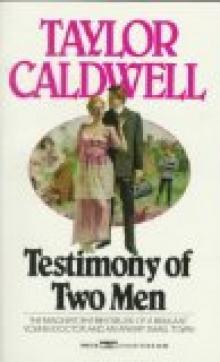 Testimony of Two Men
Testimony of Two Men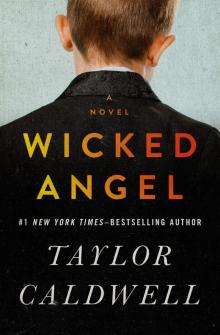 Wicked Angel
Wicked Angel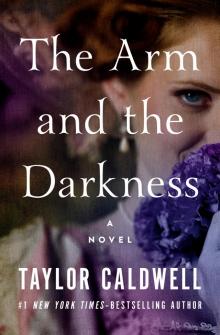 The Arm and the Darkness
The Arm and the Darkness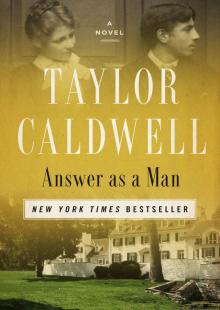 Answer as a Man
Answer as a Man Grandmother and the Priests
Grandmother and the Priests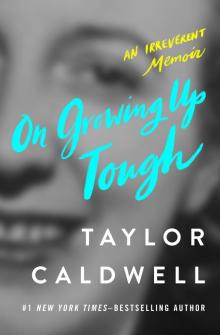 On Growing Up Tough: An Irreverent Memoir
On Growing Up Tough: An Irreverent Memoir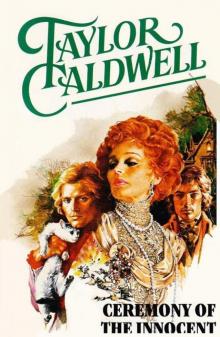 Ceremony of the Innocent
Ceremony of the Innocent The Listener
The Listener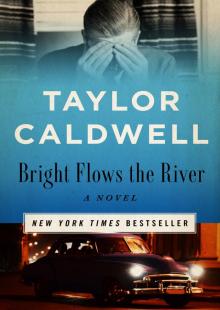 Bright Flows the River
Bright Flows the River The Earth Is the Lord's
The Earth Is the Lord's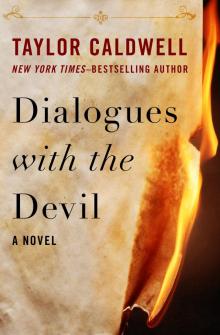 Dialogues With the Devil
Dialogues With the Devil A Tender Victory
A Tender Victory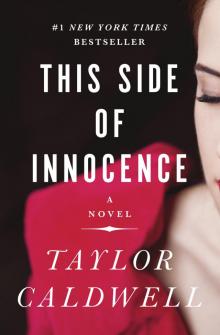 This Side of Innocence
This Side of Innocence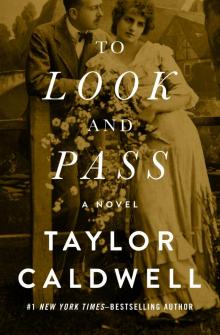 To Look and Pass
To Look and Pass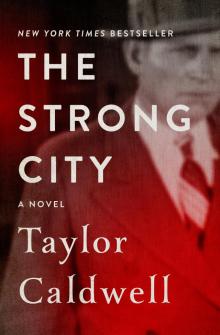 The Strong City
The Strong City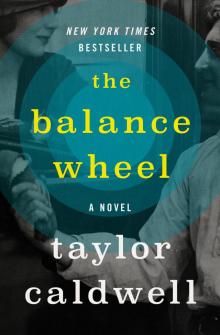 Balance Wheel
Balance Wheel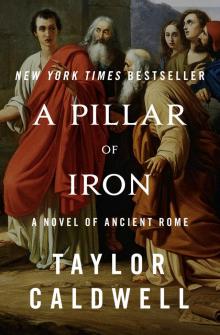 A Pillar of Iron: A Novel of Ancient Rome
A Pillar of Iron: A Novel of Ancient Rome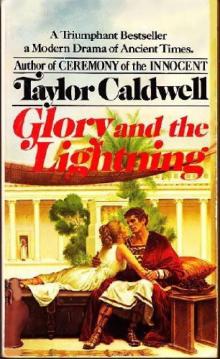 Glory and the Lightning
Glory and the Lightning Dear and Glorious Physician
Dear and Glorious Physician The Wide House
The Wide House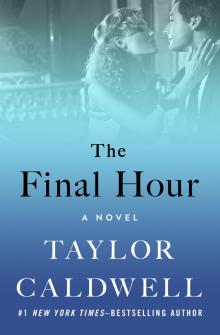 The Final Hour
The Final Hour Never Victorious, Never Defeated
Never Victorious, Never Defeated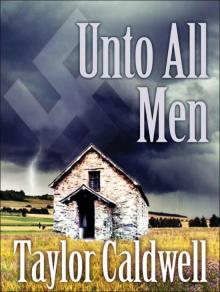 Unto All Men
Unto All Men The Turnbulls
The Turnbulls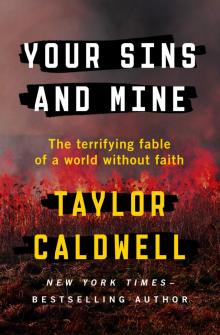 Your Sins and Mine: The Terrifying Fable of a World Without Faith
Your Sins and Mine: The Terrifying Fable of a World Without Faith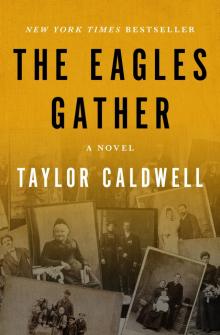 The Eagles Gather
The Eagles Gather Let Love Come Last
Let Love Come Last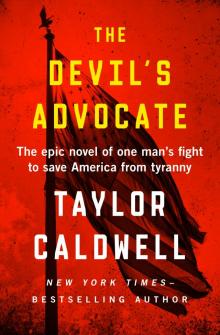 The Devil's Advocate: The Epic Novel of One Man's Fight to Save America From Tyranny
The Devil's Advocate: The Epic Novel of One Man's Fight to Save America From Tyranny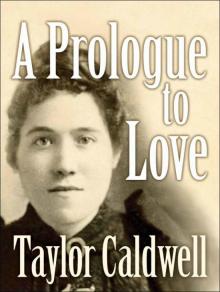 A Prologue to Love
A Prologue to Love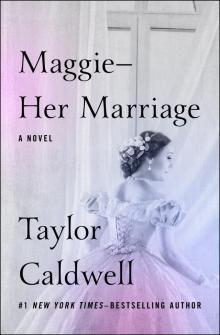 Maggie: Her Marriage
Maggie: Her Marriage The Late Clara Beame
The Late Clara Beame Melissa
Melissa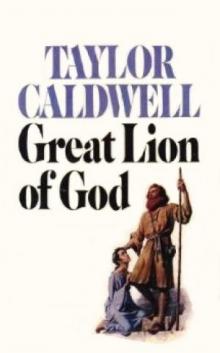 Great Lion of God
Great Lion of God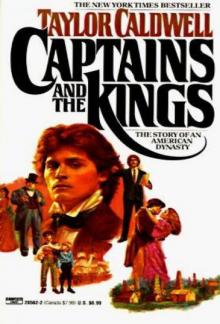 Captains and the Kings
Captains and the Kings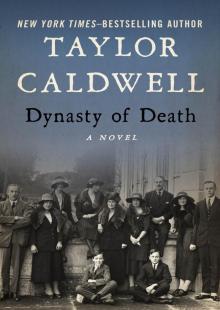 Dynasty of Death
Dynasty of Death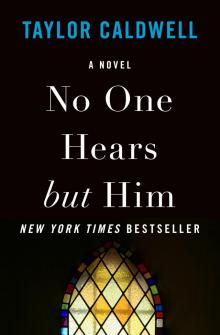 No One Hears but Him
No One Hears but Him The Sound of Thunder
The Sound of Thunder There Was a Time
There Was a Time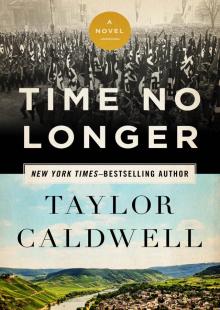 Time No Longer
Time No Longer I, Judas
I, Judas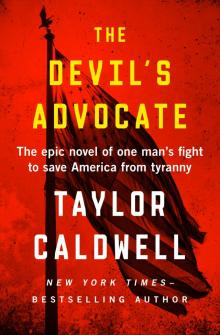 The Devil's Advocate
The Devil's Advocate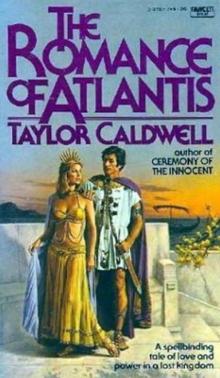 The Romance of Atlantis
The Romance of Atlantis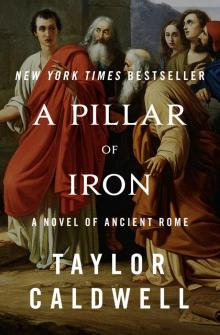 A Pillar of Iron
A Pillar of Iron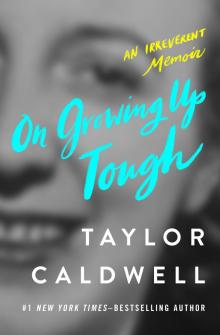 On Growing Up Tough
On Growing Up Tough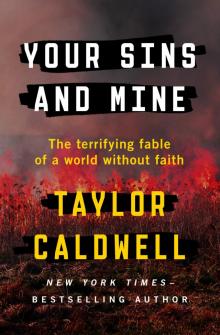 Your Sins and Mine
Your Sins and Mine